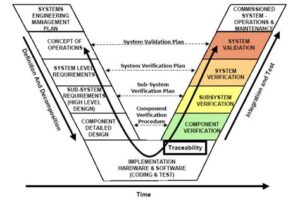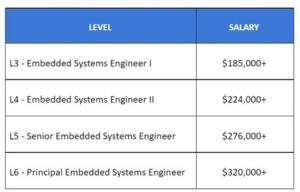Explore the crucial role of engineering management systems in project success, team collaboration, and organizational efficiency with actionable insights and implementation steps.Engineering Management Systems: Optimizing Project Success
In today’s fast-paced and technologically driven environment, the success of engineering projects hinges on effective management systems that streamline processes and enhance collaboration. Engineering management systems are essential tools that integrate various project elements, ensuring that teams work cohesively towards common goals. These systems not only promote efficiency but also facilitate communication, ultimately leading to improved project outcomes. By focusing on the key components of effective engineering management, organizations can significantly elevate their project success rates. In this article, we will explore the importance of these systems, discuss how they enhance team dynamics, and outline the steps to implement a successful engineering management strategy. Join us as we delve into how engineering management systems can transform organizational efficiency and drive project excellence.
The Importance Of Engineering Management Systems In Project Success
The role of effective engineering management systems cannot be overstated when it comes to achieving project success. These systems serve as the backbone of any engineering project, ensuring all aspects are coordinated and managed efficiently. Here, we highlight several key reasons why engineering management systems are vital:
- Improved Planning and Organization: A well-structured engineering management system facilitates better planning by defining project scopes, timelines, budgets, and resource allocations. This organized approach minimizes uncertainty and helps teams to stay focused on their objectives.
- Enhanced Risk Management: Engineering management systems provide tools for identifying potential risks early in the project lifecycle. By utilizing risk assessment models and mitigation strategies within these systems, teams can proactively address issues before they escalate.
- Streamlined Communication: Effective communication is essential in any project. Engineering management systems provide centralized platforms for documentation, feedback, and updates, ensuring that team members are aligned and that information flows seamlessly among stakeholders.
- Data-Driven Decisions: These systems often incorporate analytics and performance metrics, allowing project managers and teams to make informed decisions based on real-time data. By leveraging this information, organizations can identify areas for improvement and enhance overall project performance.
- Increased Accountability: With clearly defined roles and responsibilities within an engineering management system, team members are more accountable for their tasks. This accountability leads to improved individual performance and a collective commitment to project outcomes.
- Scalability and Flexibility: Engineering management systems are designed to be adaptable; they can grow with the organization and adjust to accommodate various project sizes and complexities. This flexibility is crucial in today’s rapidly changing engineering landscape.
In conclusion, the significance of engineering management systems in steering projects towards success is clear. By ensuring improved organization, risk management, communication, decision-making, accountability, and flexibility, these systems empower teams to achieve their goals efficiently and effectively.
Key Components Of Effective Engineering Management Systems
Effective engineering management systems encompass several key components that work together to enhance project execution, foster teamwork, and ensure efficient resource allocation. Below are some of the crucial components:
- Clear Objectives and Goals: Establishing specific, measurable, achievable, relevant, and time-bound (SMART) objectives is essential for guiding the direction of engineering projects.
- Robust Project Planning: A comprehensive project plan that includes timelines, milestones, and resource allocations is crucial for tracking progress and ensuring accountability.
- Risk Management: Identifying potential risks and developing mitigation strategies is vital for minimizing disruptions and ensuring project continuity.
- Collaboration Tools: Utilizing collaboration platforms enhances team communication and ensures that all stakeholders have access to necessary information and updates.
- Performance Metrics: Establishing key performance indicators (KPIs) allows for the evaluation of team productivity, project timelines, and overall efficiency.
- Continuous Improvement: Implementing feedback loops and regular reviews helps identify areas for improvement, fostering a culture of innovation and efficiency among teams.
- Training and Development: Investing in the professional development of engineering teams strengthens their skills and contributes to the overall success of engineering management systems.
Integrating these components into an engineering management system creates a structured approach that drives project success and promotes sustainable growth in organizations.
How Engineering Management Enhances Team Collaboration And Communication
In the realm of engineering, the effectiveness of a team is often determined by the quality of collaboration and communication among its members. Engineering management plays a pivotal role in fostering an environment where seamless interaction can thrive. By implementing structured processes and leveraging various tools, engineering managers can elevate team dynamics significantly.
One of the core aspects of engineering management is the establishment of clear communication channels. Utilizing project management software, collaboration platforms, and regular team meetings ensures that all members are informed about project timelines, responsibilities, and updates. This transparency not only boosts accountability but also encourages team members to engage actively in discussions, leading to innovative solutions and enhanced project outcomes.
Moreover, effective engineering management facilitates knowledge sharing among team members. By promoting a culture of collaboration, where insights and expertise are exchanged freely, teams can leverage diverse skill sets and experience levels, resulting in more comprehensive problem-solving approaches. Engineering managers can implement mentorship programs and cross-functional workshops to further strengthen this collaborative ethos.
Additionally, regular feedback sessions are integral to improving communication within the team. Through constructive feedback, team members can understand their strengths and areas for improvement. This iterative process helps in building trust and respect among colleagues, which is crucial for teamwork in high-stakes engineering projects.
In conclusion, engineering management significantly enhances team collaboration and communication by establishing clear channels, promoting knowledge sharing, and encouraging a culture of continuous feedback. These elements not only contribute to greater efficiency but also cultivate a more engaged and motivated workforce, ultimately leading to the success of engineering projects.
Steps To Implement A Successful Engineering Management System
Establishing a robust engineering management system is crucial for enhancing project efficiency and ensuring successful outcomes. Below are the essential steps to effectively implement such a system within an organization:
- Define Clear Objectives: Begin by identifying the goals of your engineering management system. These objectives should align with the overall business strategy and address specific project requirements.
- Assess Current Processes: Conduct a thorough review of existing engineering processes and management practices. This assessment helps in identifying strengths and weaknesses within the current system.
- Engage Stakeholders: Involve key stakeholders, including project managers, team members, and clients, in the planning process. Gaining input from various perspectives ensures the system meets diverse needs.
- Select Appropriate Tools: Choose software and tools that facilitate project tracking, resource allocation, and team communication. Ensure these tools integrate well with your existing infrastructure.
- Develop Training Programs: Create training initiatives to equip team members with the necessary skills to utilize the new engineering management system effectively. Continuous learning is vital to keep up with technological advancements.
- Implement Incrementally: Rather than introducing the entire system at once, opt for a phased implementation. Start with a pilot project to test functionality and gather feedback before a full rollout.
- Monitor and Evaluate: After implementation, continuously monitor the system’s performance and gather data on its impact on project delivery and team efficiency. Use this information to identify areas for improvement.
- Solicit Feedback: Regularly solicit feedback from users to identify challenges and opportunities. This feedback loop will help in refining the system over time.
- Adjust and Scale: Be prepared to make adjustments to the system based on evaluations and feedback. As the organization grows, the system should be scaled accordingly to accommodate larger projects and teams.
- Celebrate Success: Acknowledge and celebrate milestones achieved through the effective implementation of your engineering management system. Recognizing successes boosts morale and reinforces the benefits of the new processes.
By following these steps, organizations can create an effective engineering management system that enhances productivity and leads to successful project outcomes.
Measuring The Impact Of Engineering Management On Organizational Efficiency
Evaluating the effectiveness of engineering management within an organization is crucial for understanding its impact on overall efficiency. Several metrics and methodologies can be employed to capture these outcomes effectively.
Key Performance Indicators (KPIs)
Utilizing KPIs tailored to both project and organizational goals can provide insights into the effectiveness of engineering management. Common KPIs include:
- Project completion rates
- Resource utilization
- Time-to-market for new products
- Cost variance
- Employee productivity levels
Employee Engagement and Satisfaction
The engagement of team members is a significant factor in organizational efficiency. By measuring engineering management practices through employee surveys and feedback, companies can assess how management approaches impact morale and motivation.
Project Outcome Analysis
After project completion, analyzing the outcomes against initial objectives can shed light on the efficacy of the engineering management system. This includes reviewing success factors, challenges faced, and lessons learned. Such analyses help identify areas for improvement in future projects.
Continuous Improvement Cycles
Implementing methodologies such as Lean or Six Sigma can aid in assessing and refining engineering management systems. These techniques focus on identifying inefficiencies and streamlining processes, thereby contributing to measurable enhancements in organizational performance.
In summary, the impact of engineering management on organizational efficiency can be effectively measured through a combination of KPIs, employee feedback, project outcome analysis, and continuous improvement strategies. By maintaining a proactive approach to these metrics, organizations can ensure that their engineering management systems remain effective and aligned with their operational goals.
Frequently Asked Questions
What are engineering management systems?
Engineering management systems are frameworks that integrate engineering principles and managerial practices to optimize the design, development, and operation of engineering projects.
Why are engineering management systems important?
They are important because they help organizations improve efficiency, enhance decision-making processes, and ensure that projects meet quality standards and deadlines.
What are common components of an engineering management system?
Common components include project planning tools, resource management software, quality control processes, risk management frameworks, and communication platforms.
How can organizations implement an engineering management system?
Organizations can implement such systems by assessing their specific needs, selecting appropriate software tools, training staff, and establishing clear protocols and procedures.
What challenges might arise when adopting an engineering management system?
Challenges may include resistance to change, initial implementation costs, the complexity of integrating with existing systems, and ensuring adequate training for staff.
How do engineering management systems contribute to sustainability?
They contribute to sustainability by promoting efficient resource use, minimizing waste during engineering processes, and facilitating compliance with environmental regulations.
What is the future of engineering management systems?
The future of engineering management systems likely involves greater integration of artificial intelligence, machine learning, and data analytics to enhance decision-making and project outcomes.





